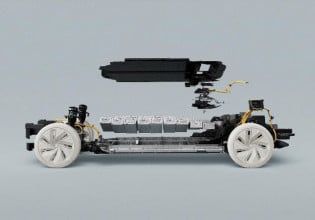Phono Solar, a producer of mono crystalline and poly crystalline solar modules, has launched a new ac module. According to the company, the new product eliminates the need for dc wiring and centralized power inverters while offering greater productivity, reliability and performance.
The new ac module is designed to eliminate the need for expensive dc components. Each ac module is coupled with an inverter which converts dc power to usable ac power instantly, without a centralized inverter. Described as easy to design and install, the modules include pre-manufactured cables and are delivered ready for connection, for fast and inexpensive mounting.
According to the company, ac systems are more efficient at transporting energy and do not incur electrical losses inherent in dc circuits, resulting in more uptime and an increase in kW-h generated for greater overall productivity. The robust ac module features stainless steel hardware, inverter NEMA 4x, and no cooling vents meaning units remain clean and dry on the inside reducing system upkeep for enhanced reliability.
Every ac module is maximum power point tracked for optimal performance. Inverter peak efficiency is at an impressive 95.8% and CEC weighed efficiency at 94.5%. An optional communication hub monitors each panel independently and shade only affects the shaded panel – not the entire system.
"Our new ac module offers a number of advantages over traditional dc systems," shares Chris Kamykowski, President of Phono Solar North America. "Without the dc side wiring, the modules are safer. And the modules are very reliable. No single point of failure will disable the system. Even individual PV breakage from extreme weather does not stop system power output."
The Phono Solar ac module features a 25 year performance guarantee of 90% up to 10 years and 80% up to 25 years. The modules are CEC Program registered and offer product certification to UL 1703 and IEC 61215 (ed.2). In addition, the modules hold a Class C fire rating.
More news and information regarding the latest developments in Smart Grid electronics can be found at Darnell’s SmartGridElectronics.Net.






